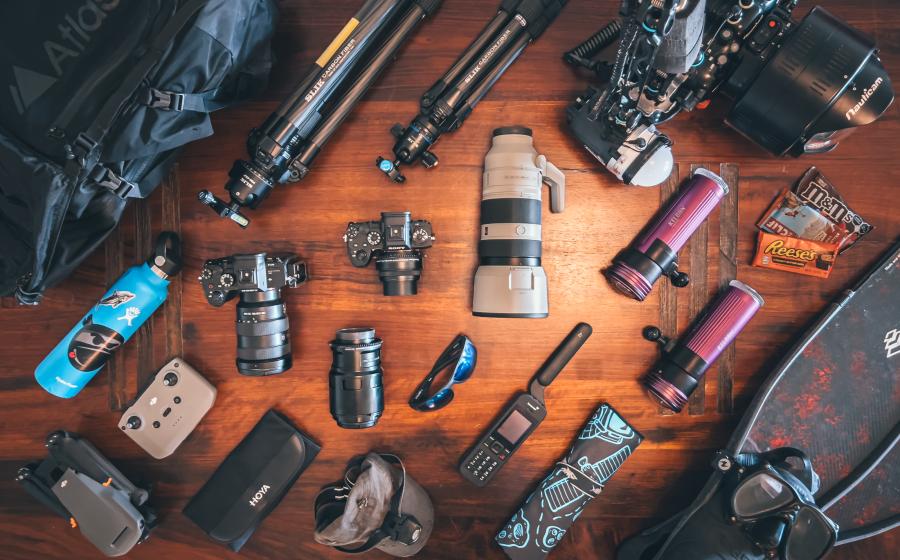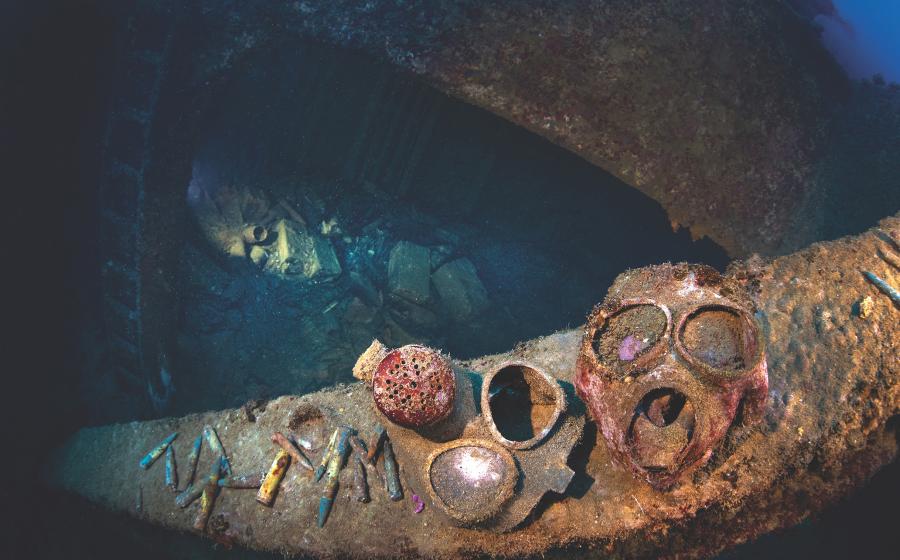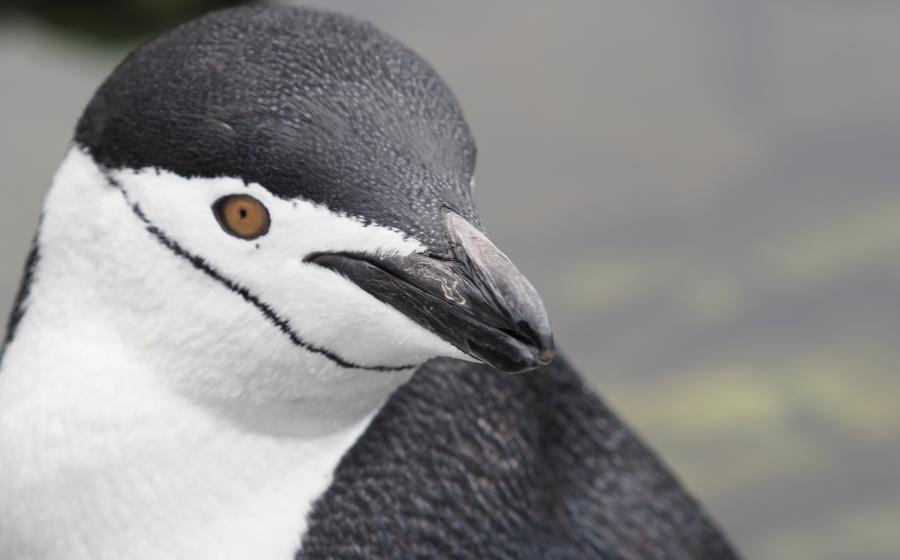Truths and Consequences
November 2006
By Selene Yeager
The rules that govern scuba diving are part science, part experience, and part theoretical reasoning, which in the end adds up to a recipe for wild speculation and a sort of diving lore that gets passed around between margaritas at beachside bars. This month, we investigate the science (or lack thereof) behind some of diving's common conventional wisdom and urban legends. So next time someone comes at you with what sounds like a fish story, you'll have the facts.
Hot Tubbing After a Dive Causes DCS
The post-dive spa soak is a fairly new phenomenon, so there are no studies on hot tubs contributing to decompression sickness. Researchers did find that commercial divers who took hot showers after diving were more likely to experience mild symptoms of DCS including shoulder pain. "Dive tables are based on offgassing during normal circulation," says dive doctor Alfred Bove, M.D., Ph.D., coauthor of Diving Medicine. "If you get into a hot tub and suddenly increase circulation to muscles and raise your peripheral temperature, it changes the dynamics of gas washout."
Based on these findings, some live-aboard operators do not offer hot tubs on their boats. "Even if there's one available, you should probably skip it and warm up slowly with a regular shower," says Bove. Research shows warm-water showers are safe.
Underwater Sex Rocks!
Scuba sex is a dangerous pursuit, says dive researcher and psychiatrist David F. Colvard, M.D., of Raleigh, N.C. "The act itself is likely as safe underwater as it is above, but scuba and sex don't mix because it's bad news to be so distracted during a dive," he says. "It would be very hard to control buoyancy while having sex, which increases the likelihood that you'll float up too fast, increasing your risk for embolism or decompression sickness." Your respiratory rate also rises during sex, leaving you at a higher risk for running out of air. That's not even considering the myriad other (and maybe life-threatening) risks of underwater carnal adventures, like losing your regulators, knocking off your masks or getting vital hoses hopelessly tangled.
Even if you were willing to take the risk, like sex in space, underwater intercourse would be pretty hard to pull off. Whoopee loses much of its whoop when you figure in the logistics of wetsuits, cumbersome tanks, weightlessness and water. Leave this one in the fantasy banks.
Driving to Altitude After Diving Can Cause the Bends
If you go high enough, there's certainly a risk. There are places, like Hawaii, where you can get in trouble by hiking to altitude too soon after diving. The issue here is that there is less air pressure holding nitrogen in solution, so existing bubbles will expand and new bubbles may form. If you drive over a pass of 8,000 feet, you will reach the altitude to which commercial airplane cabins are pressurized, so ideally, you should wait 12 hours before making the trip. To simplify matters, there's a table aptly called Required Surface Interval Before Ascent to Altitude After Diving that you can download at www.ndc.noaa.gov. The hitch is that the table is based on your dive "letter group," so if you usually rely on your computer, you may need to dust off your dive tables. But staying safe is worth the hassle.
It Is Impossible to Fart Below 3 Atmospheres
Where there's a will, there's a way; but even if your dry-land nickname is Methane Max, you'll likely be less bombastic 66 feet below, because gas compresses. "If you're down there long enough, you could swallow enough air or make enough gas to pass some," says Colvard. "But you will be less flatulent at that depth."
Exercising Before and/or After Diving Boosts Risk for DCS
This one continues to confound even the exercise scientists, so there's little wonder there's confusion among those of us in the masses. Conventional wisdom has been this: If you rapidly increase your body temperature and blood flow, as you do during vigorous exercise, you may change both the amount and rate of nitrogen you take on during descent (if you exercise before a dive) and/or dangerously accelerate the elimination rate (if you exercise after a dive). That's why experts from DAN on down typically recommend steering clear of vigorous exercise at least two, but preferably four, hours before and after diving.
The catch: A study published this summer in Aviation, Space and Environmental Medicine reported that seven military divers who performed vigorous exercise for 10 minutes after a half-hour 30-meter dive significantly reduced their bubble formation. Of course, one small study does not a policy change make. For now, keep your activity levels light in the hours surrounding a dive, with nothing more strenuous than walking or easy swimming in the two to four hours post-dive. "Strength training is absolutely out," notes Colvard. Navy studies found several divers developed severe DCS during dives taken shortly after strenuous weightlifting. "Heavy lifting afterwards could create a local vacuum in the joint space and overexertion of the muscles may cause bubbling out," says Colvard.
A Beer (or Two ... or Three ...) After a Dive Speeds Offgassing
This is one of those island legends, where some local hands you a Red Stripe and says, "It helps prevent decompression sickness, man." But it's like sipping whiskey at a football game to stay warm. Any benefit is an illusion. "People think of alcohol as a vasodilator, because it makes your skin flush," says Bove. So you may mistakenly believe that by "opening" your capillaries, you expedite the release of nitrogen from your system. "In reality, however, alcohol is a pretty strong vasoconstrictor," he explains. That means it squeezes off blood flow, interrupting usual circulation, and anything that inhibits circulation may inhibit offgassing. It also contributes to dehydration, which in itself is a factor in DCS. NAUI's official position is that drinking after a dive may raise risk for DCS.
Even if it doesn't directly lead to a bout with decompression sickness, a few drinks could easily mask (or lead you to ignore) symptoms of DCS, which means you may not seek medical assistance as quickly as you should. "That's not to say you can't crack open a cold beer after your last dive of the day," says Bove. "Just drink plenty of water and limit your consumption."
Peeing on a Jellyfish Sting Relieves the Pain
Michael Douglas supposedly thinks so. British tabloids were aflutter this summer when the Fatal Attraction star reportedly asked his five-year-old son to "pee-pee" on his back after being stung by a jellyfish in Majorca, Spain. Fact is, urine is certainly not your best option, though it theoretically may provide some small benefit. "Urine contains urea, which may deactivate the nematocysts and stop them from firing into your skin," says Bove. "But I don't think you should start peeing on some guy's leg." Especially since a better remedy is likely right in front of your eyes--namely seawater.
If you have it, vinegar should be your first line of defense against jellyfish stings, because it neutralizes the stingers. Saltwater also helps, and is often your most readily available resource. (Don't use tap or freshwater; that can actually cause the remaining nematocysts to fire, intensifying your pain.)
November 2006
By Selene Yeager
The rules that govern scuba diving are part science, part experience, and part theoretical reasoning, which in the end adds up to a recipe for wild speculation and a sort of diving lore that gets passed around between margaritas at beachside bars. This month, we investigate the science (or lack thereof) behind some of diving's common conventional wisdom and urban legends. So next time someone comes at you with what sounds like a fish story, you'll have the facts.
Hot Tubbing After a Dive Causes DCS
The post-dive spa soak is a fairly new phenomenon, so there are no studies on hot tubs contributing to decompression sickness. Researchers did find that commercial divers who took hot showers after diving were more likely to experience mild symptoms of DCS including shoulder pain. "Dive tables are based on offgassing during normal circulation," says dive doctor Alfred Bove, M.D., Ph.D., coauthor of Diving Medicine. "If you get into a hot tub and suddenly increase circulation to muscles and raise your peripheral temperature, it changes the dynamics of gas washout."
Based on these findings, some live-aboard operators do not offer hot tubs on their boats. "Even if there's one available, you should probably skip it and warm up slowly with a regular shower," says Bove. Research shows warm-water showers are safe.
Underwater Sex Rocks!
Scuba sex is a dangerous pursuit, says dive researcher and psychiatrist David F. Colvard, M.D., of Raleigh, N.C. "The act itself is likely as safe underwater as it is above, but scuba and sex don't mix because it's bad news to be so distracted during a dive," he says. "It would be very hard to control buoyancy while having sex, which increases the likelihood that you'll float up too fast, increasing your risk for embolism or decompression sickness." Your respiratory rate also rises during sex, leaving you at a higher risk for running out of air. That's not even considering the myriad other (and maybe life-threatening) risks of underwater carnal adventures, like losing your regulators, knocking off your masks or getting vital hoses hopelessly tangled.
Even if you were willing to take the risk, like sex in space, underwater intercourse would be pretty hard to pull off. Whoopee loses much of its whoop when you figure in the logistics of wetsuits, cumbersome tanks, weightlessness and water. Leave this one in the fantasy banks.
Driving to Altitude After Diving Can Cause the Bends
If you go high enough, there's certainly a risk. There are places, like Hawaii, where you can get in trouble by hiking to altitude too soon after diving. The issue here is that there is less air pressure holding nitrogen in solution, so existing bubbles will expand and new bubbles may form. If you drive over a pass of 8,000 feet, you will reach the altitude to which commercial airplane cabins are pressurized, so ideally, you should wait 12 hours before making the trip. To simplify matters, there's a table aptly called Required Surface Interval Before Ascent to Altitude After Diving that you can download at www.ndc.noaa.gov. The hitch is that the table is based on your dive "letter group," so if you usually rely on your computer, you may need to dust off your dive tables. But staying safe is worth the hassle.
It Is Impossible to Fart Below 3 Atmospheres
Where there's a will, there's a way; but even if your dry-land nickname is Methane Max, you'll likely be less bombastic 66 feet below, because gas compresses. "If you're down there long enough, you could swallow enough air or make enough gas to pass some," says Colvard. "But you will be less flatulent at that depth."
Exercising Before and/or After Diving Boosts Risk for DCS
This one continues to confound even the exercise scientists, so there's little wonder there's confusion among those of us in the masses. Conventional wisdom has been this: If you rapidly increase your body temperature and blood flow, as you do during vigorous exercise, you may change both the amount and rate of nitrogen you take on during descent (if you exercise before a dive) and/or dangerously accelerate the elimination rate (if you exercise after a dive). That's why experts from DAN on down typically recommend steering clear of vigorous exercise at least two, but preferably four, hours before and after diving.
The catch: A study published this summer in Aviation, Space and Environmental Medicine reported that seven military divers who performed vigorous exercise for 10 minutes after a half-hour 30-meter dive significantly reduced their bubble formation. Of course, one small study does not a policy change make. For now, keep your activity levels light in the hours surrounding a dive, with nothing more strenuous than walking or easy swimming in the two to four hours post-dive. "Strength training is absolutely out," notes Colvard. Navy studies found several divers developed severe DCS during dives taken shortly after strenuous weightlifting. "Heavy lifting afterwards could create a local vacuum in the joint space and overexertion of the muscles may cause bubbling out," says Colvard.
A Beer (or Two ... or Three ...) After a Dive Speeds Offgassing
This is one of those island legends, where some local hands you a Red Stripe and says, "It helps prevent decompression sickness, man." But it's like sipping whiskey at a football game to stay warm. Any benefit is an illusion. "People think of alcohol as a vasodilator, because it makes your skin flush," says Bove. So you may mistakenly believe that by "opening" your capillaries, you expedite the release of nitrogen from your system. "In reality, however, alcohol is a pretty strong vasoconstrictor," he explains. That means it squeezes off blood flow, interrupting usual circulation, and anything that inhibits circulation may inhibit offgassing. It also contributes to dehydration, which in itself is a factor in DCS. NAUI's official position is that drinking after a dive may raise risk for DCS.
Even if it doesn't directly lead to a bout with decompression sickness, a few drinks could easily mask (or lead you to ignore) symptoms of DCS, which means you may not seek medical assistance as quickly as you should. "That's not to say you can't crack open a cold beer after your last dive of the day," says Bove. "Just drink plenty of water and limit your consumption."
Peeing on a Jellyfish Sting Relieves the Pain
Michael Douglas supposedly thinks so. British tabloids were aflutter this summer when the Fatal Attraction star reportedly asked his five-year-old son to "pee-pee" on his back after being stung by a jellyfish in Majorca, Spain. Fact is, urine is certainly not your best option, though it theoretically may provide some small benefit. "Urine contains urea, which may deactivate the nematocysts and stop them from firing into your skin," says Bove. "But I don't think you should start peeing on some guy's leg." Especially since a better remedy is likely right in front of your eyes--namely seawater.
If you have it, vinegar should be your first line of defense against jellyfish stings, because it neutralizes the stingers. Saltwater also helps, and is often your most readily available resource. (Don't use tap or freshwater; that can actually cause the remaining nematocysts to fire, intensifying your pain.)






